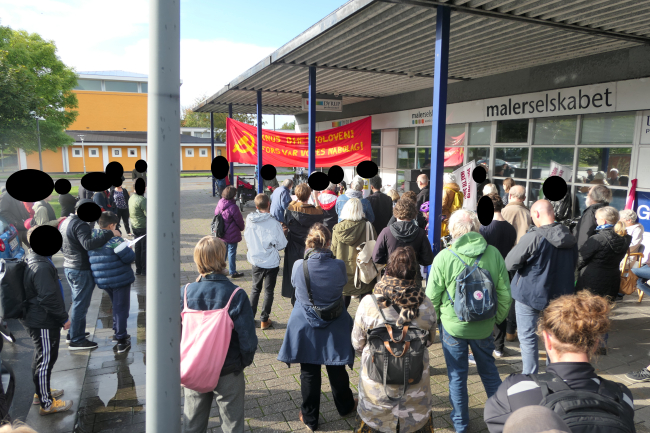Last Saturday more then a hundred people from the proletarian neighborhoods of Copenhagen came together in a manifestation to denounce their neighborhoods to be officially branded “Ghettos” under the new legislation that was enacted in the beginning of this year. With the “Ghetto Law” the state create a new weapon for interfering in the proletarian neighborhoods and allows to impose harsh measures that fully negates even the most basic demo-liberal rights and, as such, is part of the drastic reactionarization observed in Denmark in recent years.
The “Ghetto Law” (which has been covered in the January issue of the Rote Post available in German) designates 29 neighborhoods in Denmark to officially be “Ghettos”, based on statistics such as the rate of employment, income rates, education level, criminality and – particularly – high rate of inhabitants with “non-western background”. For these neighborhoods plans exist to increase camera surveillance, to double the sentence for all crimes committed, to force kindergarten children to attend at least 25 hours of kindergarten every week (so their education can be monitored by the state) and, in the same direction, to disallow the people from the neighborhoods to frequently travel to their home countries, as this would interfere with the education of the child, connecting a four year jail sentence with it.
Furthermore, the “Ghetto Law”, under the guise of combating the ghetto character, hands over many liberties to the landlords and companies owning the flats and houses in this neighborhoods to “improve” the housing situation by granting rights to tear down old houses in favor of new ones or to renovate them. Obviously, this will inevitably lead to a situation, where the affordable housing of many people will be torn down in favor of a much more expansive one.
Against this activists and neighbors, among them Danish comrades, mobilized last weekend to a manifestation. Hoisting a banner with the slogan “Crush the Ghetto Law! Defend our neighborhood!” and through a speech the participants were rallied to organize resistance against the state’s attack on them and their rights.

